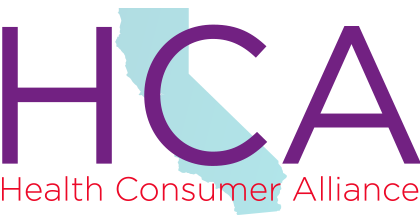Join Our Mailing List
Búsqueda de las noticias de HCA
Obamacare Repeal, Thought Dead in July, May Be Revived in Senate
Move to End DACA Leaves Some Young Immigrants Fearing for Their Health
Lack of transportation is a barrier to healthcare
Health care for people in low-income communities is a challenge exacerbated by a lack of reliable transportation, especially in rural areas.
Babies’ race affects quality of care in California neonatal intensive care, study says
An infant’s race and ethnicity affect the quality of care they receive in California neonatal intensive care units, according to a Stanford study.
CBO: Premiums will rise over 20% if the feds stop paying subsidies
If the federal government carries out its threats to cut co-pay subsidies, insurers will increase premiums more than 20% and the federal deficit will increase $20 billion every year for the next 10 years.
Senate Rejects Slimmed-Down Obamacare Repeal as McCain Votes No
Rural Californians Want Price Relief From GOP Health Bill, But Unlikely To Get It
California Joins States That Protect Patients Against Nasty Surprise Bills
Settlement Reached on Kaiser Permanente’s Repeated Mental Health Care Deficiencies
Millions of Kids Fall Outside Senate Health Plan To Shield Disabled From Medicaid Cuts
Senate Bill would leave CA with a $115 Billion Shortfall through 2027
The director of Medi-Cal says, “The long-term impact of this bill cannot be understated: It is simply devastating.”
14 Million Reasons to Worry about GOP Health Bills
Californians who rely on Medi-Cal are anxious, if not panicked, about health care legislation on Capitol Hill that would drastically change Medi-Cal and the health insurance industry.
GOP Senate Bill Would Cut Health Care Coverage By 22 Million
Not only will millions lose coverage, the coverage available would be prohibitively expensive.
AHCA’s Medicaid Cuts Would Harm the Elderly & Disabled
The AHCA would cut Medicaid funding to those groups that Medicaid was designed to cover and protect since its beginning.
California trying to protect co-pay help
CSRs are vital to help with co-pays, reduce deductibles, and lower co-insurance for qualified members of Covered California’s health plans.
Covered California Tells Insurers to Plan for the Worst
Because the federal government will not commit to paying for the cost sharing subsidies, California tries to do what it can to stabilize its marketplace.
California To Pay About $1.3 Billion For Medicaid Expansion In First Year of State Contributions.
California tried High-Risk Pools. What were the results? Not good.
The GOP proposes an AHCA plan that has already failed in California.


